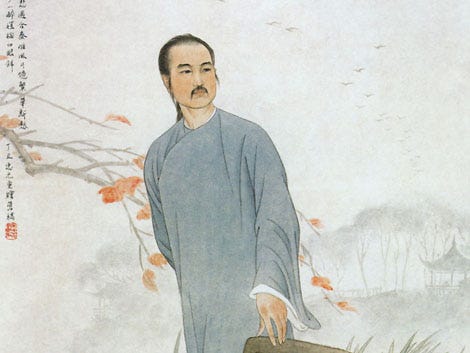Starting From The End
You might have noticed something interesting in the title of yesterday’s poem.
The poem was called 終身誤, which literally translates to “mistake at the end of life.” In my translation, I changed that phrase to “regret at the end of life” to help it make a little more sense.
The poem itself really only makes sense if you know what the end of Dream of the Red Chamber has in store. It’s a little cryptic, sure, but it’s not all that crazy or bizarre if you’ve been paying attention. In particular, there are clear references to the odd story at the beginning of the book about the stone that let the magical dew roll off its back to feed the flower.
Now, this isn’t the first time that Cao Xueqin inserted his reminiscent thoughts into the beginning of this book. There’s also the book’s famous beginning, which most translators skip over:
The big question, of course, is why in the world Cao Xueqin would write a novel like this.
It would make sense to put the reminiscent poetry and philosophic thoughts at the end of his story, after everything has taken place. Putting it in the beginning is quite strange.
But the most bizarre part, of course, is that we’re not certain that Cao Xueqin actually finished his book. Or, in other words, these poems are not reflections on his characters that he wrote long after his story was finished. This was part of the original drafting process. It’s clear that he had at least some idea of where he wanted to go with his story, and that he had planned certain elements of it out deliberately.
I suppose this is the reason why so many scholars have devoted so much time and attention to this book. The question you ask yourself right away is how in the world somebody could have written a book like this.
We don’t have any original manuscripts of the final 40 chapters of the novel in Cao Xueqin’s hand, or that are directly attributable to him. We’re a long way away from this now, but, when we eventually get past chapter 80, we’ll notice a distinct change in writing style in the Chinese original. It’s clear that Cao Xueqin isn’t the one who drafted the final 40 chapters.
But, if that’s the case, how in the world could he write such insightful poetry about the end of a book he hadn’t yet finished?



